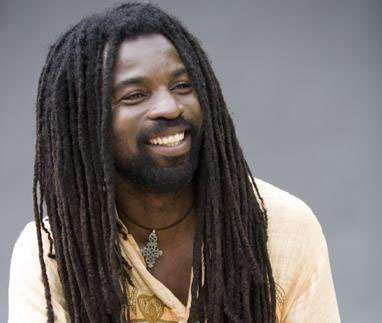African music is not merely entertainment; it is a force that carries memory, mobilizes politics, heals communities, and transmits knowledge across generations.
From the protest anthems of Fela Kuti to contemporary Afrobeats dominating global charts, African musical forms have repeatedly proven their capacity to shape both hearts and markets.
At a moment when African nations face urgent needs, youth unemployment, fragile social fabrics in post-conflict zones, infrastructure deficits, and underleveraged cultural assets, music offers a practical, culturally grounded route to redevelopment.
Treated as an economic sector and social instrument, music becomes a multiplier for inclusive growth and lasting change.
Grammy-nominated Ghanaian musician Rocky Dawuni believes African music should play an important role in rebuilding and transforming the continent socially, culturally, and economically.
Rocky Dawuni described Africa as ‘the most blessed continent’ but lamented that it has spent too many years ‘in the wilderness’.
He argued that despite its wealth of talent and natural resources, Africa remains weighed down by a colonial mindset that affects its worldview.
According to him, this mindset has stripped Africans of the opportunity to embrace and celebrate their own culture authentically.
“Africa has been the most blessed continent, but we have spent many times and many years in the eilderness. We are like the God’s children that were cast in different places. You know, some are in the diaspora. We live close to our brothers and sisters in neighbourhood, in other countries, but when we cross, we are like, oh, I’m going to Cote d’Ivoire, I need to learn French, because I speak English. We’re still shackled by the colonial mindset. And I think that has also infiltrated into our own worldview and has robbed us of the opportunity to do things that are authentically African, and things that really represent who we are as a people.”
Rocky Dawuni
He explained that even African leadership fails to reflect the continent’s cultural identity, making it difficult for the rest of the world to give Africa the respect it deserves.

The international musician urged African not to imitate others but instead to value their culture and harness music as a tool for self-discovery, unity, and development.
“Even when you look at most of our leadership, our leadership a lot of times has not even reflected what we culturally are. If we, as a people, don’t elevate our culture and uphold our culture as a cornerstone of our identity, then nobody will respect us as a people. We can’t become cheap copies of somebody else. So, we have to let the music now be a tool for our redevelopment, our finding ourselves, as knowing that Africa doesn’t need to be a bunch of countries competing against each other when they were all originally the same people.”
Rocky Dawuni
The global music industry’s recent expansion demonstrates that sound ideas translate into dollars. African genres like Afrobeats, Amapiano, Afro-house, mbalax, highlife and more have crossed borders, attracting streaming audiences, concert tours, brand partnerships, and sync deals with film and advertising.
This export potential creates foreign exchange, supports local creative ecosystems (producers, managers, sound engineers, venue staff), and spawns’ ancillary industries such as fashion, hospitality, tourism, and tech.
Call To Action

African music is more than cultural ornamentation; it is infrastructure—social, economic and diplomatic—that accelerates redevelopment if treated with intention.
Rocky Dawuni mentioned that Africa must break free from colonial borders and divisions, unite as one people, and use its energy and natural wealth to create progress from within rather than allowing outsiders to exploit its resources.
“We have to throw away those shackles of colonial borders, and unify as a people, and utilize the youthful resources and manpower that God has given ius in this time, and also the material resources that God has endowed us to develop our own people, and not subject it to the exploitation of others, whose ultimate aim is to keep us divided in subjugation, so that they comes and exploit our God-given birthright.”
Rocky Dawuni
Policymakers should stop viewing music as a luxury and start seeing it as a strategic sector deserving investment and protection. Private investors, development agencies and diasporic communities must partner with local artists and cultural institutions to build sustainable ecosystems.
The continent’s future is not solely in factories or farms but also in the songs, rhythms and stories that move its people.
By aligning policy, finance and community action behind music, Africa creates dignified jobs, heal societal fractures, tell its own stories to the world, and turn sound into sustained development. The first step is simple: listen—and then invest.
READ ALSO: Don’t Shut Out Doctors Ghana Urgently Needs, MDC Warned























